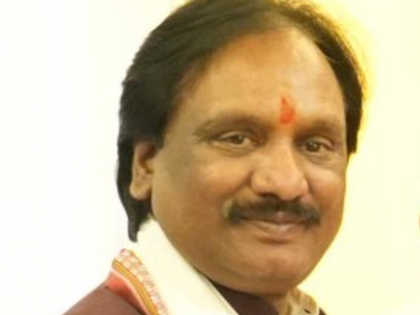ONOE may affect local bodies’ autonomy: Maha LoP Ambadas Danve
By IANS | Updated: May 19, 2025 19:12 IST2025-05-19T19:08:25+5:302025-05-19T19:12:51+5:30
Mumbai, May 19 The Leader of Opposition in the Maharashtra Legislative Council and Shiv Sena (UBT) leader Ambadas ...

ONOE may affect local bodies’ autonomy: Maha LoP Ambadas Danve
Mumbai, May 19 The Leader of Opposition in the Maharashtra Legislative Council and Shiv Sena (UBT) leader Ambadas Danve on Monday, on behalf of opposition parties, said that the proposed legislation on One Nation One Election (ONOE) poses serious implications for the constitutional framework work, federalism, local self-governance and electoral integrity in India.
He further argued that synchronising national and state elections could dilute the visibility of state-level issues and weaken regional governance priorities. Further, the ONOE proposal could indirectly affect the autonomy of local bodies such as Panchayats and Municipal Corporations, by reducing electoral decentralisation and marginalising grassroots-level democratic engagement.
In a representation to the visiting joint parliamentary committee, Danve said that the stated objectives of efficiency and fiscal discipline are acknowledged, but the proposed legislation poses serious implications for the constitutional framework. India’s Constitution provides for a federal structure where states enjoy autonomy in governance and electoral scheduling.
“Regional parties such as the DMK, Trinamool, and BJD play a crucial role in representing state-specific concerns. The proposed simultaneous elections may favour national parties in terms of media, funding, and campaign visibility, leading to electoral imbalance,” he said.
The Maha LoP Ambadas Danve added that frequent elections provide voters with regular opportunities to hold governments accountable, adding that the fixed five-year terms under ONOE may limit this feedback mechanism, thereby weakening democratic responsiveness.
He claimed that the ONOE Bill lacks clarity on how midterm elections will be handled in cases of Assembly dissolution, President's Rule, or unstable coalition government scenarios common in Indian polity.
“Though long-term savings are projected, the initial cost of acquiring new EVMs, training staff, and upgrading infrastructure would impose a substantial financial burden,” he said.
“The Election Commission of India (ECI) would be tasked with conducting elections for over 900 million voters across 543 Lok Sabha and 4,000+ Assembly seats. Such a massive exercise may stretch ECI's logistical, human, and technological capacity, thereby affecting the transparency and efficiency of the process,” said Danve.
He added that in rural and remote regions, there is already a shortage of polling stations, trained personnel, and security. Holding simultaneous elections would add tremendous pressure to local administrative systems, potentially affecting voter turnout and access.
“We strongly urge that before proceeding further with this legislation, comprehensive consultations must be held with all state governments, regional parties, local governing bodies, the Election Commission of India, expert committees, and civil society organisations. India's democratic identity is rooted in its pluralism and diversity. Uniformity must not come at the cost of representation and equity. We respectfully request that these objections be formally considered and appended to the parliamentary deliberations on the Bill,” he said.
Disclaimer: This post has been auto-published from an agency feed without any modifications to the text and has not been reviewed by an editor
Open in app